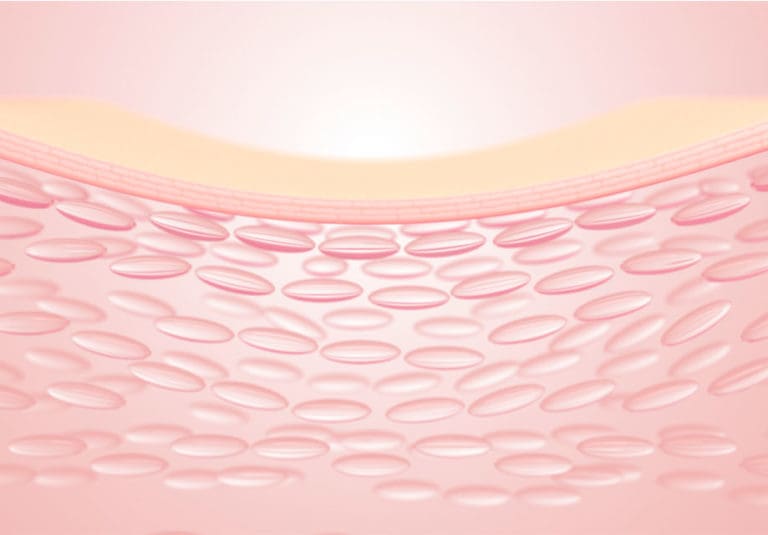
Collagen, often referred to as the body’s structural scaffold, plays an important role in maintaining the health, elasticity, and youthful appearance of the skin.
It’s the most abundant protein in the human body, comprising a significant portion of the skin’s extracellular matrix. This fibrous protein provides structural support to tissues, organs and, notably, the skin.
Where is collagen produced and what does it do?
Collagen is produced by specialised cells called fibroblasts, which are found in the dermis, the second layer of the skin. These fibroblasts synthesise collagen molecules, which then form a network of fibres. These fibres act like a framework, providing the skin with its firmness and strength. There are different types of collagen, each with specific functions in the skin. Type I collagen is the most abundant type. It’s responsible for the skin’s structure and resilience, providing it with strength, firmness and stretchy properties. Type III collagen is found alongside Type I, and helps to further support elasticity and flexibility.
As we age, the natural production of collagen slows down, leading to a gradual decline in skin elasticity which contributes to the formation of wrinkles and sagging skin. Environmental factors such as UV exposure, smoking, and pollution can also accelerate collagen degradation, further exacerbating the signs of ageing.
Collagen is also crucial for maintaining skin hydration. Its fibrous structure helps retain water molecules, keeping the skin plump and well-moisturised. This hydration is vital for a youthful complexion, as dry skin is more prone to developing fine lines and wrinkles.
In addition, collagen contributes to wound healing and skin regeneration. In the event of an injury, collagen fibres form a temporary scaffold at the wound site, aiding in tissue repair and knitting the skin back together. Over time, this scaffold is gradually replaced by new collagen, helping to restore the skin’s integrity.
How can collagen levels be increased?
Utilising collagen synthesis in skincare and anti-ageing treatments is becoming more and more significant. Various cosmetic procedures, such as dermal fillers and microneedling, aim to stimulate collagen production to rejuvenate the skin. Additionally, collagen-infused topical products, like serums and creams, are popular for their ability to enhance skin texture and reduce the appearance of wrinkles.
Supplementing collagen through oral ingestion has also gained popularity. Collagen supplements are available in various forms, including powders, capsules, and beverages. While scientific studies on the efficacy of oral collagen supplements are ongoing, some research suggests potential benefits for skin health and elasticity.
Maintaining and supporting collagen production is beneficial for restoring a youthful appearance and maintaining vibrant skin. A balanced diet rich in nutrients like vitamin C, which is essential for collagen synthesis, can contribute to healthy collagen production. Additionally, protecting the skin from excessive sun exposure and adopting a consistent skincare regimen can help preserve existing collagen and slow its natural degradation.
What treatments can enhance collagen production?
At Face Medical we provide a range of treatments to help collagen synthesis, including: fractional skin resurfacing, microneedling, skin boosters, profhilo, and now, HarmonyCA.
With any treatment we ask that patients attend a private consultation to ensure the most suitable treatment and the right amount of sessions is recommended to meet each individual’s needs.
